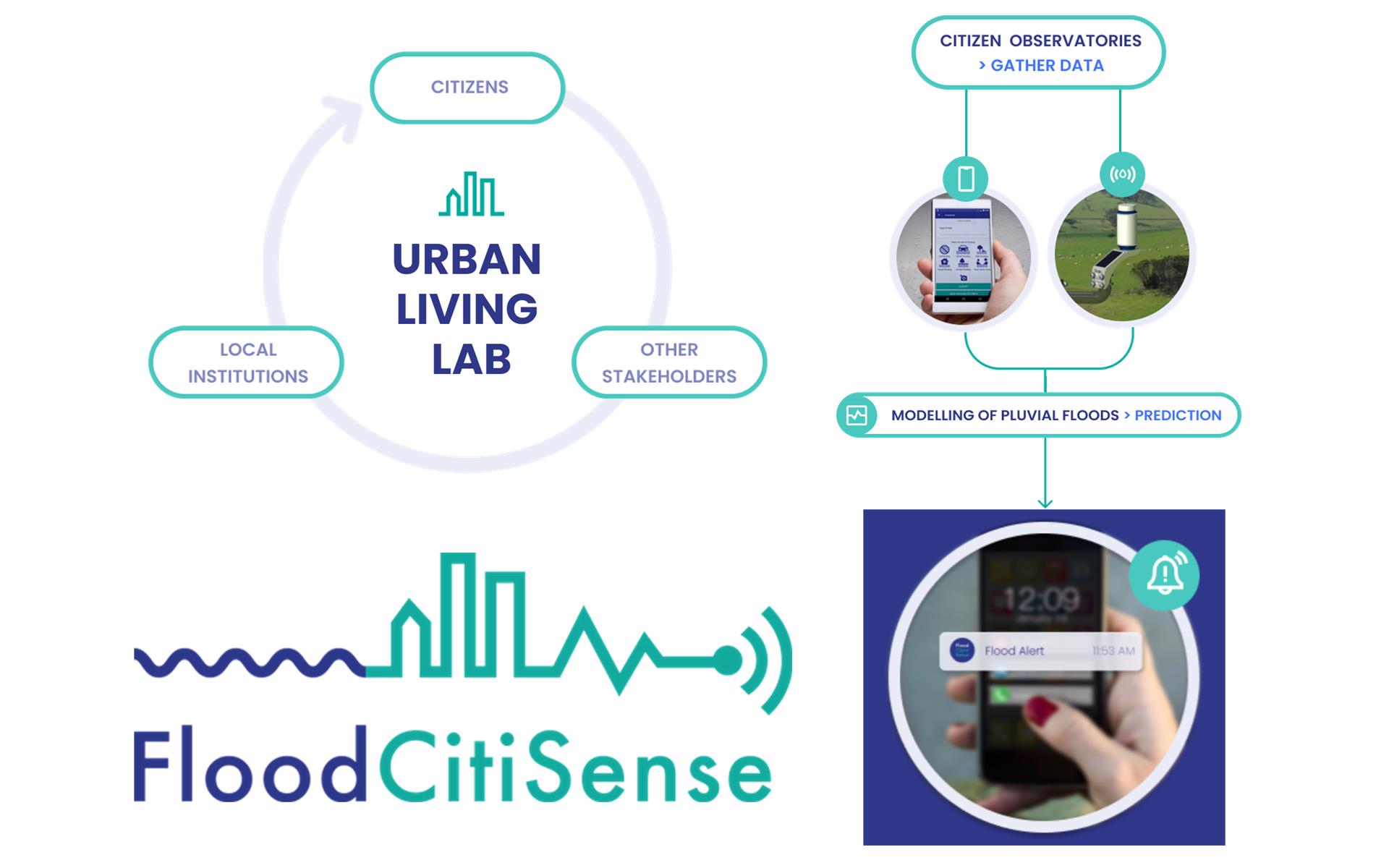Project overview:
The European FloodCitiSense project focused on improving cities’ resilience to flooding through co-development of innovative monitoring and early warning systems by citizens, researchers and local water managers. Part of the ERA-NET Smart Urban Futures funding initiative, the project included academic, industrial and governmental partners from the UK, Belgium, the Netherlands, Austria and Taiwan.
Urban living labs were setup in three pilot cities: Birmingham (UK), Brussels (Belgium) and Rotterdam (the Netherlands). Working with local citizen groups and following co-creation approaches, three main activities were carried out:
- Networks of citizen-operated low-cost rain sensors (piezoelectric disdrometers) were implemented,
- A mobile app and accompanying web platform were developed which allow citizens to report flooding in their local area, visualise rainfall and flood reports logged by other participants, and receive flood warnings, and
- Data-driven urban pluvial flood forecasting systems were developed using data and models currently available at each of the pilots. In the case of Birmingham, two modelling approaches were tested. The first approach assumes rainfall forecasts are available and initially categorises them as flood-inducing or not using eigenfaces. Afterwards, the spatial distribution of floods linked to a flood-inducing rainfall forecast is predicted using logistic regression. The second approach consists of a two-stage (weather + flood forecasting) analogue system. An overview of these approaches, including test results, and those implemented in other pilot cities is given in this presentation.
Our role:
Besides taking active part in the co-creation activities at the UK pilot, Rain++ staff were responsible for:
- Providing technical support in the installation and operation of low-cost rainfall sensors,
- Deploying a network of LoRa nodes for data transmission across the Birmingham pilot,
- Implementing an IstSOS database for storing rainfall data from low-cost sensors and other local rain gauge networks across the three pilot cities,
- Supporting the development of the web platform, and
- Providing scientific inputs for the development of Birmingham’s data-driven weather and flood forecasting system.
Lessons learnt:
Through the FloodCitiSense project we learned about the benefits of co-creation approaches and citizen observatories (e.g. improved understanding, acceptability and ownership of solutions) and the challenges that these approaches entail (e.g. data reliability, technical problems with low-cost sensors, difficulty of long-term stakeholder engagement).
Furthermore, we were able to explore the feasibility of implementing data-driven flood forecasting models based upon currently available data and models. Amongst other things, we learned that typically available flood records may be insufficient for training data-driven models (records are generally short, sparse, and often of inconsistent quality). Instead, where available, hydraulic models can be used to generate flooding scenarios which can then be used to train data-driven models.
Relevant links: A project infographic is available from this link and the full project website is available here.


